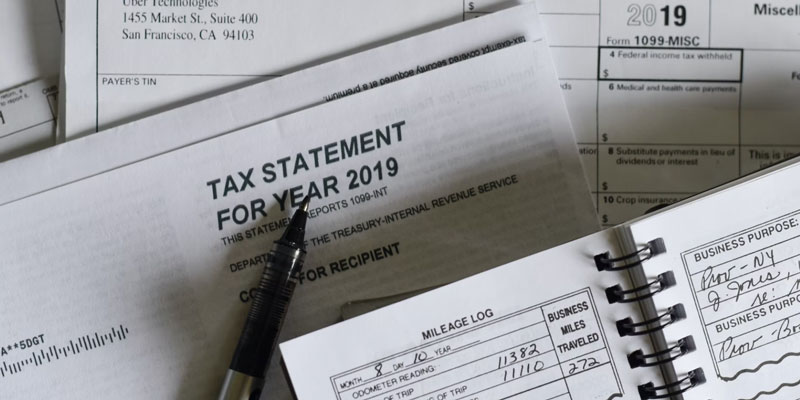Share Repurchases vs. Redemptions: Pros and Cons
May 26, 2025 By Kelly Walker
Share repurchases and share redemptions are the two alternatives available to a corporation if it needs to acquire outstanding shares from its shareholders. These two strategies are available to companies to reduce the number of outstanding shares they have on the market. Nevertheless, the two approaches operate and accomplish their goals differently. This article will cover all about the Purchase Back Shares. Also, the article will discuss Share Repurchases vs. Redemptions.
Why Purchase Back Shares?
Many considerations go into a company's decision to Purchase Back Shares. One of the reasons is to give the shareholders some of the excess cash. If a corporation has more cash than it requires, it may buy back some of its shares to give the difference to its shareholders.
Share repurchase programs can also communicate a company's belief that its shares are undervalued. It has the potential to boost investor confidence and improve the performance of stock prices. In addition, decreasing the number of shares actively held in circulation can boost earnings per share and improve financial ratios, making the business more appealing to potential investors.
Share Repurchases vs. Redemptions
When a business buys back its shares from the market, it is referred to as a share repurchase. When a firm has extra cash on hand and wants to return some of it to shareholders, it typically does what is known as a cash dividend. Purchases of shares on the open market or through a tender offer are both valid options for repurchasing shares. Repurchases of existing shares often have the effect of driving up the price of those shares that are still outstanding. This can boost earnings per share and improve stock price performance.
Conversely, share redemption occurs when a firm buy back its shares from shareholders, often known as redeeming or calling back its stock. A firm typically does this when it wants to lower the number of currently outstanding shares for a particular purpose. Redemptions of shares can be made at a predetermined price. Compared to share repurchases, share redemptions may not necessarily result in a rise in the value of the remaining shares.
Advantages and Disadvantages of Share Repurchases vs. Redemptions

Although either approach may benefit corporations and their shareholders, it is essential to be aware of the potential downsides associated with both approaches. The following is a list of some of the benefits and drawbacks associated with each method:
Share Repurchases
Advantages
There are various advantages of Share Repurchases. Some of them are as follows:
- Can signal confidence
- Increase earnings per share
- Tax benefits
Disadvantages
The disadvantages of Share Repurchases are as follows:
- It can be expensive
- It can be seen as a lack of investment opportunities
- Includes the timing risk
Share Redemptions
Advantages
There are various advantages of Share Redemptions. Some of them are as follows:
- Simplify capital structure
- Reduce shareholder dilution
- Control shareholder base
Disadvantages
The disadvantages of Share Redemptions are as follows:
- Fixed redemption prices may not reflect market value
- It has ordinary income taxes
- Potential negative signal
Trends and Patterns in Share Repurchases and Redemptions
In recent years, firms have shown an increased interest in Share Repurchases. Companies in the technology sector, such as Apple, Microsoft, and Alphabet, have been at the forefront of the trend of Share Repurchases. The current climate of low interest rates may be contributing to the popularity of share repurchases in some companies. It has reduced borrowing money costs and enabled firms to use debt as a funding source for buybacks. Increasing earnings per share and improving financial ratios are two goals that can be accomplished through share repurchases, ultimately making a firm more appealing to potential investors.
On the other hand, there has been a marked decrease in share redemptions in recent years. This could be partially explained by the fact that redemptions are often more costly for firms than share repurchases are at the same time. In most cases, they demand that the corporation pay a certain sum to buy back the shares. In addition, redemptions are not as flexible an option as share repurchases are since they do not permit the same amount of freedom in terms of time and cost. This may lead some people to consider redemptions as a less flexible alternative.
Choosing between Share Repurchases vs. Redemptions

The specific conditions and objectives of the company should inform which course of action—share repurchases or redemptions—the company decides to take. Share repurchases are an option that should be considered if the objective is to demonstrate confidence in the firm's future or to return excess cash to the shareholders. On the other hand, share redemptions might be a better option if the objective is to simplify the company's capital structure or cut down on the number of shares that are already outstanding for any reason. It is essential to consider the repercussions of each choice about taxes. Shareholders may be subject to taxes on their capital gains when shares are redeemed, but they may only be subject to taxes on their ordinary income when shares are repurchased. The decision ought to be based on the strategic objectives of the organization as well as the potential impact on shareholders.
To Wrap Up
Share repurchases are a popular way for shareholders to get their money back, and shareholders do not have to participate in the program if they don't want to. Redemptions happen when a company asks its shareholders to sell back some of its shares in exchange for other business assets.
When a business wants to buy back its shares, it can do so on the open market or from its current owners. In contrast to the mandatory redemption process, a purchase is a free choice to sell shares back to the company. But buyers are often paid for the chance that their shares will be repurchased by adding a premium to the call price.

Filing Form 1310: A Guide for Claiming Refund Due a Deceased Taxpayer
Find out how to use Form 1310 to file a claim for a dead taxpayer's refund. Understand the qualifying criteria and the filing process for Form 1310 as well.
May 26, 2025 Rick Novak

Corporate Tax Rates Around the World: From the Highest to the Lowest
Here are the nations that have the most favorable business tax environments and which impose the highest tax burdens on corporations. Whether you're an entrepreneur looking to minimize your tax liabilities or simply curious about global tax policies, this article provides valuable insights into the world of corporate taxation.
May 26, 2025 Kelly Walker

Ways to Increase Your Chances of Getting a Job After College
Are you a college student looking for an edge in the job market? Get tips on making yourself stand out from other candidates, maximize your interview potential, and network effectively.
May 26, 2025 Kelly Walker

Share Repurchases vs. Redemptions: Pros and Cons
Learn about the pros and cons of share repurchases and redemptions for companies and shareholders. Discover the benefits and drawbacks of each method.
May 26, 2025 Kelly Walker

Top Bachelor's Degree for a Hedge Fund Career
Start your hedge fund career by exploring and understanding which bachelor's degree will give you an edge over others vying for similar positions.
May 26, 2025 Kelly Walker

Amazing Guide On How To Qualify For The Home Office Tax Deduction
This post introduces the home office tax deduction eligibility and its other aspects
May 26, 2025 Rick Novak